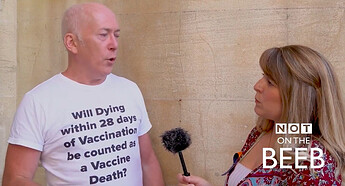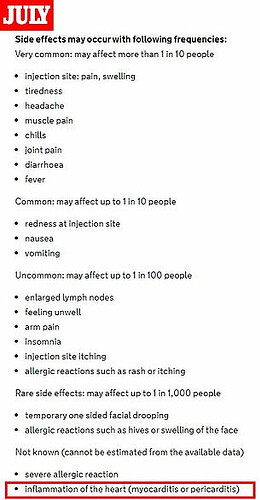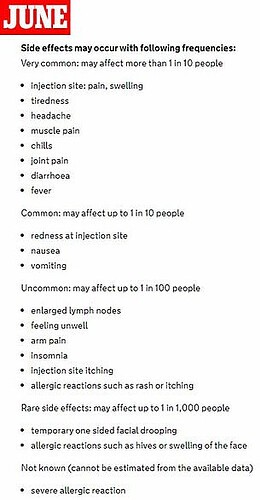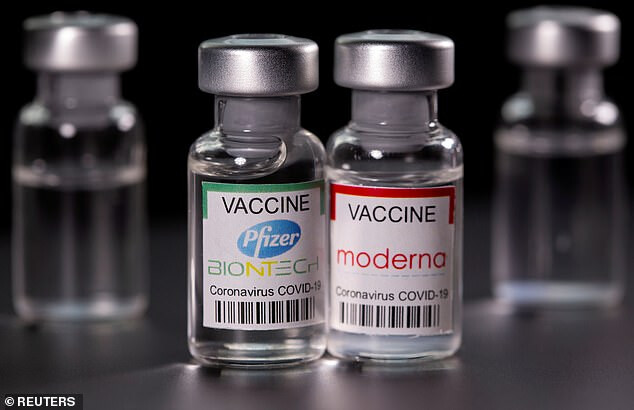Open Letter to the MHRA Regarding Child Death Data
January 20, 2022

Signals that Covid-19 Vaccines may have caused death in children and young adults
Dated 19 January 2022
To:
- Dr June Raine, Chief Executive, MHRA
- Professor Lim, Chairman, JCVI COVID-19 subcommittee
- Hon Sajid Javid, Secretary of State for Health and Social Care
- Professor Sir Chris Whitty, Chief Medical Officer for England
- Sir Patrick Vallance, Government Chief Scientific Adviser
- Dr Jenny Harries OBE, Chief Executive, UKHSA
Dear Dr Raine, Professor Lim, Mr Javid, Professor Whitty, Sir Patrick Vallance & Dr Harries,
URGENT
RE: Signals that Covid-19 Vaccines may have caused death in children and young adults
We write to demand an immediate, urgent investigation to determine whether the Covid-19 vaccines are the cause of significant numbers of deaths seen recently in male children and young adults.
We also request that anonymised data and information known to be available, showing how many children have died following a Covid-19 vaccine and within how many days, be published for full transparency, in the public interest.
On Thursday 13th January 2022, at a hearing in the High Court[1] in London, evidence was presented showing a significant increase in the number of young male deaths following roll out of the Covid-19 vaccinations compared with the prior five-year average between 2015 and 2019. It is important to look at male deaths separately, given what is known about higher risks from myocarditis in young males.
Between 1st May to 24th December 2021 there were
- 402 registered deaths in 15–19-year-old males, 65 more than the 337 five-year average;
- by contrast, 163 registered deaths in females, 12 less than the 175 five-year average; and
- combining those, 565 deaths of males and females registered in total, 53 more than expected.
The Office for National Statistics has accepted that the increase in young male deaths is a statistically significant increase, with the mortality rate falling outside the expected confidence intervals from earlier years’ data.
Even more concerning is the fact that the actual number of deaths occurring of young males in this period is likely to be significantly higher than those registered. This is because the ONS estimates that owing to delays in registration, on average registered deaths in the period account for only 62% of actual deaths occurring. Any death where there was uncertainty about the cause will have been referred to the coroner and such deaths can take a long time to be registered. The fact that a signal is already evident in registered deaths is therefore a great concern.
Allowing for the ONS estimate, the 65 excess male deaths could represent 105 excess deaths of these young men, assuming the proportion of deaths that have been referred to the coroner is similar to previous years. If there have been more coroner’s referrals this year, the figure could be higher.
Since at least 13 October 2021, the Secretary of State and JCVI have been made aware of this increase in male deaths through their representation by the Government Legal Department in High Court proceedings. In addition, the ONS has itself now recognised that more work could be undertaken to examine the mortality rates of young people in 2021 and has confirmed in writing that it intends to undertake that work “when more reliable data are available.”
There are already signals of risk
The incidence of higher mortality in young males in 2021 coinciding with the roll out of Covid-19 vaccines cannot be dismissed as coincidental, since there have already been warning signals of serious adverse events in this age group. For this reason, the decision to offer the Covid-19 vaccine to under 18-year-olds has not been without controversy.
The JCVI previously declined to recommend that the Covid-19 vaccines be administered to healthy 12-15 year olds as the balance of benefit to risk was only marginal at best in the face of the very low risk to children of serious illness or death from Covid-19 disease, the considerable uncertainty of the potential harms of the Covid-19 vaccines, the known signals of harms from the vaccines already identified and the absence of complete and long term safety data in circumstances where the vaccines have been rapidly brought to market, long before the normal phase III clinical trials used to assess safety have been completed. On 3 September 2021 the JCVI said:
“Overall, the committee is of the opinion that the benefits from vaccination are marginally greater than the potential known harms (tables 1 to 4) but acknowledges that there is considerable uncertainty regarding the magnitude of the potential harms. The margin of benefit, based primarily on a health perspective, is considered too small to support advice on a universal programme of vaccination of otherwise healthy 12 to 15-year-old children at this time. As longer-term data on potential adverse reactions accrue, greater certainty may allow for a reconsideration of the benefits and harms. Such data may not be available for several months.”
The JCVI’s decision was overturned by the four chief medical officers of England, Wales, Scotland and Northern Ireland, not because they found there was a health benefit to children in respect of the Covid-19 vaccines but because, based on modelling analyses, they concluded that the Covid-19 vaccines were likely to reduce school absences. Notwithstanding that theoretically preventing a few days of absence for mild, cold-like symptoms could never reasonably be regarded as justification for administering vaccines with unknown long-term effects, this was the justification given for the vaccination of school-age children. Since then, data must have been obtainable and should have been collected and reviewed to determine whether vaccinations have in fact reduced school absences, and the extent to which absences have occurred by reason of (a) administration of the vaccination program and (b) adverse reactions to the vaccines.
In addition, on 4 August 2021 the JCVI initially recommended only one dose to healthy 16–17-year-olds, recognising that there was an enhanced risk in young males of myocarditis from the Covid-19 vaccines, especially following a second dose, as identified by the FDA in the U.S. and from data emerging in Israel. It is notable that when, in November 2021, the JCVI advised that 16–17-year-olds should be administered a second dose, it did so without including any express statement that it considered the benefits of the Covid-19 vaccine outweighed the risks in that age group. Instead, it recognised that information on the longer-term risks (months to years) of myocarditis was unclear and would only become available with the passage of time.
The risk:benefit concerning roll out of vaccines to under 18s had been said by the Secretary of State and those advising him to be finely balanced. Several months have passed and data as to registered deaths and school absences, together with the reduced risk from Omicron, must give cause to consider whether that fine balance must have tipped away from recommending vaccination in the young.
An investigation must be conducted
In light of the increase in deaths in young males and the known safety concerns, an investigation must be conducted. It is not suggested that the observed increase in mortality proves that the Covid-19 vaccines are causing death, whether via myocarditis or some other mechanism, but a connection cannot be excluded. The potential signal is strong enough that urgent investigations should commence immediately to rule out that possibility. Each recipient of this letter has a duty to investigate. It would be a grave dereliction of duty not to do so.
Continued at link...







